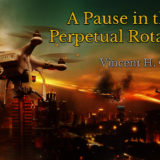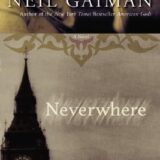
OBIR: Occasional Biased and Ignorant Reviews reflecting this reader’s opinion.

Pulp Literature Magazine #34 Spring 2022
Published by Pulp Literature Press, Langley, British Columbia, Canada, Spring 2022.
Managing Editor: Jennifer Landels, Senior Editor: Melanie Anastasiou, Acquisitions Editor: Genevieve Wynand, Poetry Editors: Daniel Cowper & Emily Osborne, Assistant Editors: Samantha Olson, Brooklyn Hook, Veronika Kos, & Melisa Gruger.
Cover art: Black Tortoise Kowtows – by Herman Lau.
Gumdrop: A Bekker Story – by JJ Lee
Premise:
Mr. Alexander Too, a Chinese-American investigator accustomed to battling occult-minded Nazis, is invited to go undercover at America’s most secret installation.
Review:
There he meets Bekker, who may or may not be a villain but is certainly useful. I could describe the situation and the plot but that would give away too much. Had Lovecraft not passed away relatively young (born 1890—died 1937) he could well have lived past WWII and taken advantage of the legendary Nazi interest in the occult to concoct stories similar to this one. Consequently, I regard this as an imaginative extrapolation of what might have been.
On the other hand, the style of writing is more restrained, not much adjective-laden description of the indescribable, for instance. Then again, it is a mood piece, with intimations of increasing dread and unstoppable threat, which is in keeping with Lovecraftian style. Yet Mr. Too, the main character, is nowhere near as hapless or helpless as the typical Lovecraftian protagonist. He’s not in danger of going mad, since death or failure are the only fates he seeks to avoid. He’s actually rather sharp.
In other words, a Lovecraftian pastiche, but not slavishly so. There are many original touches. Have to say the basic setting is quite cool. Would make for eerie visuals in a film. I had a good time reading this. Enjoyed it.
P.S. I went to check the dates of Lovecraft’s life in the “American Literature” volume of my hardcover set “The Penguin Companion to World Literature.” It doesn’t have an entry for Lovecraft! I’m shocked. But then it was published in 1971 and maybe Lovecraft hadn’t become a respectable literary figure yet. So I checked my 1999 edition of the Clute/Grant “The Encyclopedia of Fantasy” and found what I needed there. I didn’t look online. I prefer hardcover reference books. I’m just a twentieth-century kind-of-guy, you see.
Feature Interview – Pulp Literature interviews JJ Lee
Review:
JJ Lee loves fantasy/adventure pulp fiction but has always been distressed by the all-too-common racist elements which the early writers took for granted as mere authentic detail. Writing an immediate-post-war-era pulp-noir piece featuring an Asian-American hero thwarting both racism and McCarthyism is a great way to “own” the pulp tradition and invigorate it with modern sensitivity and sensibility. Goes a long way toward breathing fresh life into a genre some consider deservedly dead. I approve this process. A wonderful way to throw off the dead weight of the past and make pulp fiction new again. At least, that’s how I see what JJ Lee has accomplished with this story.
Pretty Lies: Fly Away – by Mel Anastasiou
Premise:
In part three Jenny Riley continues to search for her dead love, Joey. Ghosts can be such a nuisance.
Review:
I visited Bowen Island on just two or three occasions, but the difficulty climbing forest trails on steep slopes certainly rings true as far as my poor memory can tell. Part of the fun reading this story is the fact that it takes place in a location once familiar to me. This lends credibility to the events described and greatly aids my suspension of disbelief.
Another fun aspect lies in Jenny’s efforts to enter the underworld. Ancient legend suggests a viable approach. The presence of a carefree ghost acting as an accidental guide provides another approach. But always Catch 22, or at least Murphy’s Law, intervenes. Apparently visiting the realm of the dead is both easy and impossible. Frustrating. I get the impression the dead feel they owe the living nothing. If I were to sum up the story to date, it’s not so much a vision of the afterlife as a study of how the living and the dead relate to one another. Much, perhaps, depends the strength of memory in a grieving individual. I await future episodes to see if any definitive answers are provided.
Complicated Grief (Poem) – by Alex Kitt
Premise:
Grief can be complicated.
Review:
Extremely short poem, but striking.
A Gentleman’s Primer for Winning Debates with your Friends and Enemies
– by Mitchell Shanklin
Premise:
Logic is the last thing that will win a debate.
Review:
I know a few people who think so highly of debate they firmly believe that all conversation should be constructed as coherently and orderly as a classical university-style debate. They also believe there is a “science” to debate and that cogent logic and clarity of concept are absolute requirements to build a proper infrastructure of invincible argument. I would go so far as to postulate they think the mere act of precise definition determines “truth” and “reality.”
I am always bemused by such fogydom. Logic can be used to prove anything, no matter how nonsensical. That’s a fact.
So, how refreshing to read instructions requiring the use of magic and irrational belief to win a debate. Very entertaining. Not least because I know people who would believe every word of it and attempt to follow it to the letter. It would be even more amusing if lawyers in court attempted same. I find this story delightfully creative.
Clothesline – by Kimberly Aslett
Premise:
Hanging your clothes to dry is part of the tangled weave of your life as much as any other strand.
Review:
Well, dang, this is highly original. Very creative to perceive the various methods and techniques of clothes drying from your earliest childhood to your current adulthood, combined with the associated circumstances of family life, as a vivid display of the very fabric of the character’s life in stark, symbolic yet realistic terms. Reflects everything from the potential of youth to the disappointed dreams of jaded maturity. Perceptive, evocative, and far more descriptive than I anticipated. Who knew the mundane could be so powerful? Impressive.
Ars Poetica (Poem) – by Mitchell Bodo
Premise:
Life is meaningless, and that’s the good news.
Review:
Let me put it the way the author puts it as quoted in a brief introduction, “His writing process is as follows. He gets sad, then writes it down.”
I can tell you the ennui and despair in this poem is absolutely authentic. I know, because I used to suffer from extreme depression off and on for much of my life. The thinking revealed in this poem is very real, very common, and hard to avoid. Genuine stuff to be sure.
But all is not lost. My 70 years have taught me the secret of life. The purpose of life is to live. That’s it. That’s all you need to know. This allows you to override the poem with objectivity and view it as an interesting exercise in irrelevant feelings and thoughts. Accurate, yes, but hopefully not applicable to you. In my case it conjures up memories, and nothing more. I’ve moved beyond depression. This poem is an excellent reminder why that’s a good thing.
Would We Had Time – by Lorina Stephens
Premise:
The fate of a precision instrument.
Review:
I happen to know this story is inspired by an actual unsolved mystery of the disastrous Franklin expedition of 1845. You may have seen the excellent TV series “The Terror” which attempts to explain what may have happened in supernatural terms. This story, also excellent, offers a logical, rational explanation for a puzzling situation which is presented as fiction but in fact is genuine, albeit inexplicable. The truth will probably never be known, but Lorina’s treatment of the matter seems perfectly credible to me.
What I particularly like are the attitudes and points of view of the two characters, which strike me as authentic to the era and completely uncontaminated by modern perspectives. It captures both the joyous enthusiasm for “contemporary” 1840s science and the matter of fact acceptance of extreme hardship so taken for granted back in the day. Lorina always does extensive research for historical pieces and it certainly shows to advantage in this story, no matter its relative brevity. The story “feels” right and, odd as it sounds when you consider its tragic aspects, is really quite charming. Somehow it adds a positive footnote to the loss of the “Erebus” and the “Terror” and all who sailed on them. This story is as precisely and finely crafted as the instrument on which it centres. Quite a treat to read.
The Realm of Shadows – by Megan W Shaw
Premise:
What lies in the shadows of a forest?
Review:
A short story explaining the purpose of shadows and how best to put them to good use. I’ll say no more since even a hint would be too much of a spoiler. Suffice to say this story, too, is essentially positive and upbeat, despite a context normally feared.
The Balance – by Douglas Smith
Premise:
What happens when a child expected to be stillborn survives despite numerous handicaps?
Review:
More children than we care to think about struggle to survive from the moment they’re born. It’s not fair to spend the first months of existence in an ICU undergoing constant crises and multiple operations. Exceedingly tough on the parents, of course, whose gamut of emotions range from hope to despair cycling so fast as to be kaleidoscopic in nature. Hard to remain sane under such conditions.
This story is harrowing in its authenticity. In that sense it is hard on the reader. Yet, as an exploration of every parent’s worst nightmare, both educational and profoundly moving. I truly believe reading this will in some small way help people to be better parents, or, at the very least, remind parents what miracles their children truly are.
This might be a useful story to place in a high school anthology, if only to allow teenagers to understand just how traumatic and difficult life can be for parents. Perhaps that’s a lost cause. Nobody understands parenting till they’ve become parents. But this is one hell of a glimpse for the uninitiated. Powerful story.
Self-Doubt with Rutebeuf (Poem) – by Derek Webster
Premise:
Something to do with rutabagas and self-doubt.
Review:
It’s late, I’m tired, and I have no idea what this poem is about. I guess I’m too literal-minded. Something to do with rejection and being the last conceivable object of desire only when the rest of the crops (lovers?) have failed? The poet seems to be suggesting he is best left abandoned and not worth bothering about. Or perhaps the poem is simply about a bad farmer who really sucks at crop rotation. I literally haven’t got a clue.
The fault is mine, of course. However, I present the poem as a conundrum, a puzzle to be solved, and no doubt the majority of its readers will glom on to its meaning at first reading. Me, I’m brain dead as I approach the deadline for this column. I should probably be embarrassed but I’m too tired. I suggest you read this poem and figure it out for yourself, then have a good laugh at my expense. That’s me in a nutshell, good for a giggle if nothing else. Sigh.
And Now: Apologies
In fact I have reached my limit. There are several more stories to go, and, if I seek to relive my university years, I’d put on a pot of coffee and stay up to dawn reading and commenting, but the truth is I no longer possess that kind of mental or physical stamina. Suddenly my thoughts each have their own individual anchor seeking to drag me down into my subconscious. “Time to dream, buddy” my brain seems to be saying. “Give up this consciousness jazz. It’s overrated.” I need to nap for about twelve hours. Sorry. This be the end of my review.
CONCLUSION:
Nevertheless I hope I have succeeded in convincing you this issue is full of innovative, creative, and masterful concepts well worth reading. Pulp Literature is always good, but this issue is particularly good, methinks. Lots of delightful originality on display. A wonderful read.
Check it out at: < Pulp Literature #34 >










